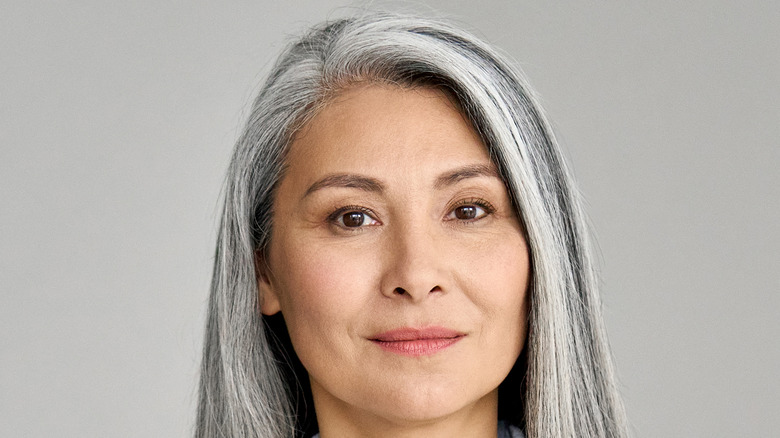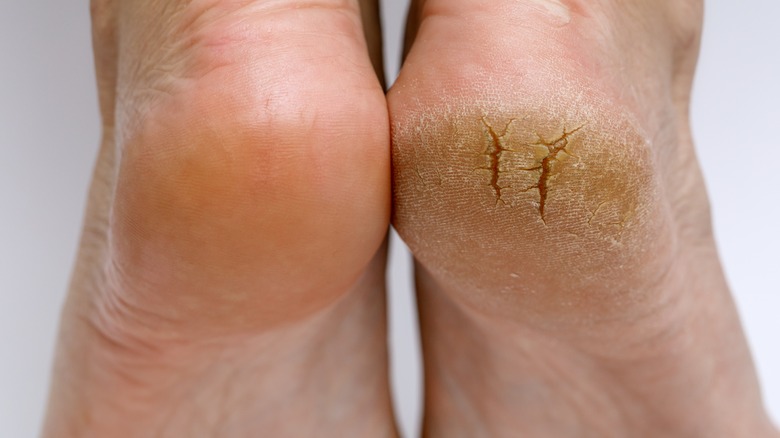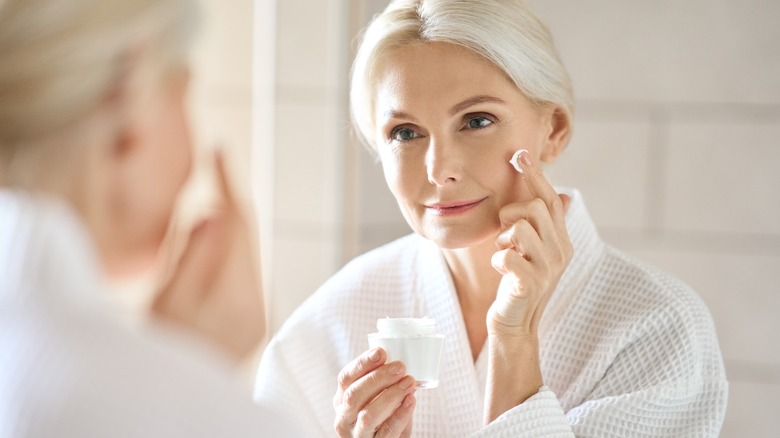Here Is Why You Heal Slower As You Age
Age affects everything about the body, including skin and bones. As you get older, you may notice that it takes longer for wounds to heal than they used to. A scrape that would have gone in a few days when you were a kid can take weeks or even months in maturity.
Why does it take so much longer for a sore or a scrape to heal when you're older than it did in childhood? Harvard Health Publishing says healing takes longer because the body's skin repairing mechanisms get a bit rusty with time. Malnutrition, blood vessel disorders, and chronic illnesses can contribute to vulnerable skin and delayed wound healing. And unless you're a Hollywood stunt person, the chances of experiencing a bad fall increase with age, making older people more likely to have one or more wounds that resist healing. Additionally, if you've had radiation therapy for cancer this usually damages the skin at the administration site. According to a 2022 review published in StatPearls, about 95% of patients who undergo radiation develop skin injuries ranging from mild reddening of the skin (erythema) to tissue death (necrosis) and open wounds with spontaneous bleeding.
But aside from any external factors, the number of growth factors, stem cells, and hormones that were plentiful in youth simply diminish with age (per Mayo Clinic). And that's the number one reason why you heal slower as you age.
Growth factor and how it affects healing
You probably know what hormones are, and you may have at least heard about stem cells, but what is a growth factor? According to Britannica, it is a protein that stimulates growth in specific tissues. There are many types of growth factors, each with the job of repairing certain body parts. Some growth factors include epidermal growth factor (responsible for skin repair), platelet-derived growth factor (responsible for repairing muscles and connective tissues), and nerve growth factor (responsible for stimulating brain cell growth and repair).
According to a 2020 mini-review in Frontiers in Bioengineering and Biotechnology, growth factors are critical for tissue repair and regeneration. In short, growth factors help maintain skin health and heal wounds. As you age and fewer growth factors are available to help with repair and regeneration, injuries take longer to heal. Stem cells factor in because they release growth factors to instigate wound healing, according to a 2010 study in the International Journal of Stem Cells.
And the sex hormones estrogen and testosterone play a part in wound healing too. Low estrogen levels or high amounts of testosterone can slow healing. For women, estrogen levels drop after menopause, resulting in slowed healing time (via Wounds).
How you can protect aging skin
By now, you may be wondering if there's anything you can do to keep your skin healthy and able to heal properly as you age. Fortunately, protecting your skin is easier than ever. Make sure to apply sunscreen all over before going outside. Use skincare products containing retinol, the dermatological gold standard, according to The Science Times. Retinol comes from vitamin A and supports collagen production and resurfaces the skin. Retinol helps fight signs of aging for a more youthful appearance and firmer, more supple texture. Younger skin means faster healing if you do get a nick or scrape.
Boost retinol results by applying a topical cream, serum, or lotion containing growth factors. Dermatologist Dr. Deirdre Hooper tells Today, "The caveat here is the data behind efficacy or actual effectiveness of growth factors is far less than the data behind the effectiveness of sunscreen, retinoid, and other cosmeceuticals," she said. "It's not my first choice of an anti-aging regimen, rather is an add-on for . . . someone already using sunscreen and retinoid." But it can help. A 2020 study in The Journal of Clinical and Aesthetic Dermatology found that subjects saw significant improvements in skin lift, firmness, hydration, and elasticity over 12 weeks after applying creams containing growth factors.
A review in Wounds illustrates how applying topical dehydroepiandrosterone (DHEA) products can significantly accelerate healing. And Healthline says eating whole foods high in proteins, fats, and antioxidants can help preserve skin health so you can heal faster.



